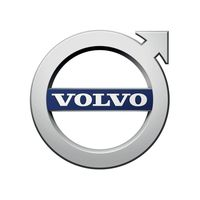Navigating the Shifting Landscape of the Automotive Industry
October 4, 2024, 3:46 pm
The automotive industry is in a state of flux. As electric vehicles (EVs) surge in popularity, traditional manufacturers and new players alike are grappling with the challenges and opportunities this shift presents. Recent developments highlight the intricate dance between innovation, regulation, and market dynamics.
Volvo Cars is gearing up for its Annual General Meeting (AGM) in 2025. The Nomination Committee has been appointed, representing a significant portion of the company’s voting rights. This committee, led by Thomas Johnstone, will shape the future of Volvo's leadership. With a record-breaking profit of SEK 25.6 billion in 2023, Volvo is riding high. Yet, the road ahead is fraught with challenges, particularly in the context of the evolving global market.
Meanwhile, the European Union (EU) is taking a hard stance against Chinese EV imports. A recent vote revealed a split among member states, with some backing hefty tariffs of up to 45% on Chinese-made vehicles. This decision is a response to perceived unfair subsidies from Beijing. The EU’s move is not just about economics; it’s a geopolitical chess game. Germany, a major player in the automotive sector, opposed the tariffs, highlighting the rift within the EU. The stakes are high, as these tariffs could reshape the competitive landscape for European car manufacturers.
The backdrop of this trade tension is the burgeoning EV market. Companies like BYD and Geely are expanding rapidly, fueled by government support and a growing appetite for sustainable transportation. The EU’s tariffs could hinder these companies' access to one of the largest automotive markets in the world. In a sense, the EU is drawing a line in the sand, asserting its position against what it sees as unfair competition.
In China, innovation is thriving. Farasis Energy has signed a strategic agreement with JMEV to develop solid-state batteries. This technology promises to revolutionize the EV landscape with higher energy density and faster charging times. The first SPS battery for JMEV's 'ELIGHT' model has already rolled off the production line. This partnership exemplifies the rapid advancements in battery technology, a critical component for the future of electric vehicles. Solid-state batteries could be the key to overcoming the limitations of current lithium-ion technology, paving the way for longer ranges and shorter charging times.
As the automotive industry pivots towards electrification, companies are also focusing on their internal cultures. Desay SV, a mobility technology firm, has been recognized as the Most Popular Employer in China. This accolade reflects a growing awareness that a company’s success is intertwined with employee satisfaction. In an industry marked by rapid change, attracting and retaining talent is crucial. Desay SV’s commitment to inclusivity and employee development sets a benchmark for others in the sector.
The interplay between innovation, regulation, and market dynamics is complex. Volvo Cars, with its ambitious goal of becoming a fully electric car maker by 2040, is navigating this landscape with a clear vision. The company’s commitment to sustainability is not just a marketing strategy; it’s a necessity in a world increasingly focused on reducing carbon footprints. As Volvo prepares for its AGM, the decisions made by the Nomination Committee will be pivotal in steering the company towards its long-term goals.
On the regulatory front, the EU’s tariffs on Chinese EVs could lead to a tit-for-tat scenario. China has already expressed strong opposition, warning of potential retaliatory measures. This could escalate into a broader trade conflict, impacting not just the automotive sector but also other industries. The EU’s decision reflects a hardened stance towards China, which has evolved over the past five years. The bloc views China as both a partner and a competitor, a duality that complicates trade relations.
As the automotive industry continues to evolve, companies must remain agile. The shift towards electric vehicles is not just a trend; it’s a fundamental change in how cars are designed, manufactured, and sold. The competition is fierce, with traditional automakers racing to catch up with new entrants. Innovation in battery technology, like that seen with Farasis Energy, will be crucial in determining which companies thrive in this new landscape.
In conclusion, the automotive industry is at a crossroads. The interplay of innovation, regulation, and market dynamics will shape its future. Companies like Volvo, JMEV, and Desay SV are leading the charge, but they must navigate a complex web of challenges. As the world moves towards a more sustainable future, the decisions made today will have lasting implications. The road ahead is uncertain, but one thing is clear: the automotive industry is changing, and those who adapt will drive the future.
Volvo Cars is gearing up for its Annual General Meeting (AGM) in 2025. The Nomination Committee has been appointed, representing a significant portion of the company’s voting rights. This committee, led by Thomas Johnstone, will shape the future of Volvo's leadership. With a record-breaking profit of SEK 25.6 billion in 2023, Volvo is riding high. Yet, the road ahead is fraught with challenges, particularly in the context of the evolving global market.
Meanwhile, the European Union (EU) is taking a hard stance against Chinese EV imports. A recent vote revealed a split among member states, with some backing hefty tariffs of up to 45% on Chinese-made vehicles. This decision is a response to perceived unfair subsidies from Beijing. The EU’s move is not just about economics; it’s a geopolitical chess game. Germany, a major player in the automotive sector, opposed the tariffs, highlighting the rift within the EU. The stakes are high, as these tariffs could reshape the competitive landscape for European car manufacturers.
The backdrop of this trade tension is the burgeoning EV market. Companies like BYD and Geely are expanding rapidly, fueled by government support and a growing appetite for sustainable transportation. The EU’s tariffs could hinder these companies' access to one of the largest automotive markets in the world. In a sense, the EU is drawing a line in the sand, asserting its position against what it sees as unfair competition.
In China, innovation is thriving. Farasis Energy has signed a strategic agreement with JMEV to develop solid-state batteries. This technology promises to revolutionize the EV landscape with higher energy density and faster charging times. The first SPS battery for JMEV's 'ELIGHT' model has already rolled off the production line. This partnership exemplifies the rapid advancements in battery technology, a critical component for the future of electric vehicles. Solid-state batteries could be the key to overcoming the limitations of current lithium-ion technology, paving the way for longer ranges and shorter charging times.
As the automotive industry pivots towards electrification, companies are also focusing on their internal cultures. Desay SV, a mobility technology firm, has been recognized as the Most Popular Employer in China. This accolade reflects a growing awareness that a company’s success is intertwined with employee satisfaction. In an industry marked by rapid change, attracting and retaining talent is crucial. Desay SV’s commitment to inclusivity and employee development sets a benchmark for others in the sector.
The interplay between innovation, regulation, and market dynamics is complex. Volvo Cars, with its ambitious goal of becoming a fully electric car maker by 2040, is navigating this landscape with a clear vision. The company’s commitment to sustainability is not just a marketing strategy; it’s a necessity in a world increasingly focused on reducing carbon footprints. As Volvo prepares for its AGM, the decisions made by the Nomination Committee will be pivotal in steering the company towards its long-term goals.
On the regulatory front, the EU’s tariffs on Chinese EVs could lead to a tit-for-tat scenario. China has already expressed strong opposition, warning of potential retaliatory measures. This could escalate into a broader trade conflict, impacting not just the automotive sector but also other industries. The EU’s decision reflects a hardened stance towards China, which has evolved over the past five years. The bloc views China as both a partner and a competitor, a duality that complicates trade relations.
As the automotive industry continues to evolve, companies must remain agile. The shift towards electric vehicles is not just a trend; it’s a fundamental change in how cars are designed, manufactured, and sold. The competition is fierce, with traditional automakers racing to catch up with new entrants. Innovation in battery technology, like that seen with Farasis Energy, will be crucial in determining which companies thrive in this new landscape.
In conclusion, the automotive industry is at a crossroads. The interplay of innovation, regulation, and market dynamics will shape its future. Companies like Volvo, JMEV, and Desay SV are leading the charge, but they must navigate a complex web of challenges. As the world moves towards a more sustainable future, the decisions made today will have lasting implications. The road ahead is uncertain, but one thing is clear: the automotive industry is changing, and those who adapt will drive the future.

